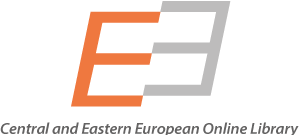The Journal of Human Resource Management – HR Advances and Developments (JHRM-AD; ISSN 2453-7683) follows the highest standards of publication ethics and takes feasible procedures against any publication-related misconduct.
The JHRM-AD is highly committed to meeting ethical principles at all stages of the publication process. In doing so, the JHRM-AD follows recommendations of the Committee on Publication Ethics (COPE) and the policies on how to manage challenging situations related to ethical misconduct according to the Publishing Ethics Resources Kit (PERK).
The key ethical expectations of the JHRM-AD and its stakeholders are:
1. Authors
1.1 Plagiarism, Redundant Publication, Text Recycling, and Referencing
JHRM-AD does not accept any form of plagiarism. Submitted manuscripts should be original and not simultaneously under review or published elsewhere. Authors should ensure that they submit only completely original works, and if they use the work and/or words of others, that this is properly cited. Publications that have influenced the nature of the work presented in the manuscript should also be cited. Authors must acknowledge and cite all sources of previously published or submitted content. Citations must follow JHRM-AD’s referencing format (see Publication Template).
Plagiarism can take many forms, from passing off another’s work as the author’s own, to copying or paraphrasing substantial parts of another’s work (without attribution), to claiming results from research conducted by others. Plagiarism in all its forms constitutes unethical publishing behaviour and is unacceptable.
Authors must maintain accurate records of data associated with their manuscript and should be prepared to supply these records upon request. Permission must be obtained for the reproduction of any content from other sources.
1.2 Ethical Use of AI and AI-assisted Technologies in Scientific Writing
When authors use artificial intelligence (AI) and AI-assisted technologies in the writing process, they should:
- AI technologies should only be used to improve readability and language, not to replace key researcher tasks such as interpreting data or drawing scientific conclusions.
- Apply AI with human oversight and control, carefully reviewing and editing results, as AI can generate authoritative-sounding output that may be incorrect, incomplete, or biased.
- Not list AI and AI-assisted technologies as an author or co-author, nor cite AI as an author. Authorship implies responsibilities and tasks that can only be attributed to and performed by humans, as outlined in Elsevier’s AI policy for authors.
- Disclose in their manuscript the use of AI and AI-assisted technologies in a Declaration of AI and AI-assisted Technologies section, as per the guidelines outlined below. A statement will appear in the published work. Please note that authors are ultimately responsible and accountable for the contents of the work.
1.2.1 Disclosure Instructions
Authors must disclose the use of AI and AI-assisted technologies in the writing process by adding a statement at the end of their manuscript in a new section entitled “Declaration of AI and AI-assisted technologies in the writing process”. Statement: During the preparation of this work the author(s) used [NAME TOOL / SERVICE] in order to [REASON]. After using this tool/service, the author(s) reviewed and edited the content as needed and take(s) full responsibility for the content of the publication. This declaration does not apply to the use of basic tools for checking grammar, spelling, references etc. If there is nothing to disclose, there is no need to add a statement.
1.3 Authorship
JHRM adheres to the International Committee of Medical Journal Editors (ICMJE) definition of authorship (ICMJE Guidelines). Authorship should be limited to individuals who have made significant contributions to the manuscript. JHRM-AD strictly prohibits ghost authorship (uncredited contributors) and gift authorship (crediting individuals who made no substantial contributions). Some examples of activities that alone do not qualify a contributor for authorship are the acquisition of research funding; supervision of a research group, general administrative support; and writing assistance such as technical editing, language editing, and proofreading. Contributors who do not meet all criteria for authorship, as defined by the ICMJE, should not be listed as authors; however, they can be acknowledged in a separate section of the manuscript under the heading “Acknowledgment” located at the end of the article before the “References” section.
1.4 Fees and Access
Authors are required to pay no submission-, publication-, or processing-related fees charged in the JHRM-AD. The JHRM-AD publishes two issues per year in an open-access mode which means that all content is freely available without charge to the user or his/her institution (further information at https://www.jhrm.eu/).
1.5 Copyright, Publishing Agreement, Funding Information, Competing Interests, and Informed Consent
All authors submitting a paper to the JHRM-AD confirm by signing the Publishing Agreement that they accept all ethical and publishing standards of the JHRM-AD (see Publishing Agreement).
All funding information (funding related to the respective research/article) should be clearly stated by the Author(s) in a separate section under the title “Funding”, located at the end of the article prior to the “References” section.
Authors should declare any potential conflicts of interest, if applicable (e.g. authors have a competing interest that could have an undue influence on their duties at any stage during the publication process).
All procedures performed in the respective research involving human participants have to be in accordance with the ethical standards and authors should ensure that any studies involving human (or animal) subjects conform to national, local and institutional laws and requirements (e.g., WMA Declaration of Helsinki). An informed consent has to be obtained from human participants included in the study. Author(s) have to respect the participants’ right to privacy.
1.6 Cooperation with Editors and Reviewers
Author(s) agree to notify the JHRM-AD Editor-in-chief as well as the Associate editors without any delay in case the Author(s) discover an error or inaccuracy in the submitted manuscript, and to cooperate with them to correct the manuscript.
Author(s) have an obligation to cooperate through the whole review process with JHRM-AD Editors, to read the review results carefully, to consider all Reviewers’ comments with respect, to amend or revise the manuscript where necessary or applicable and to return the revised version of the manuscript to the Associate Editor on time and in the requested quality.
2. Reviewers and review process
2.1 Nature of the review process
All of the JHRM-AD content is subjected to an expert double-blind peer review, through which Author(s) obtain professional and expert advice on individual manuscripts. Every paper is reviewed by at least two independent Reviewers in order to guarantee high standard and quality of each published paper. The JHRM-AD guarantees that the peer review and publication process is fair, just and objective (the review process in JHRM-AD and COPE Ethical Guidelines for Peer Reviewers).
2.2 Reviewers’ Professionalism
The following attributes of professionalism are expected from reviewers:
- Objective, professional, and timely feedback: Reviewers’ judgments and findings in the review process have to be objective. Their mission is to contribute to the quality decision-making process and to assist in improving the quality of the published papers by reviewing the manuscript objectively and on time. In case the Reviewer is not sure whether he or she will return the review within the requested deadline, he/she should inform without delay the Associate editor.
- Expertise in the field of review: Reviewer should only agree to review manuscripts for which he or she has the subject expertise required to carry out a proper assessment.
- Potential conflicts of interest before accepting a review assignment: Reviewers should seriously consider any conflicts of interest they may have in the manuscript under review that could affect their objectivity in their evaluation (see more in section 2.3).
- Constructive criticism of the manuscript: Reviews have to be objective and constructive and provide feedback that will help the authors improve their manuscript. Reviewers thus should avoid general statements, and should be specific in what should be done by the Author(s) to raise the quality of the manuscript. Reviewers should support their views with solid arguments and supporting references as necessary. Personal criticism of the Author(s) is considered inappropriate.
- Ethical concerns such as plagiarism, redundant publication, text recycling, or data manipulation: Reviewers should pay attention to ethical issues like text recycling, redundant (previously published) texts, appropriateness of approvals/consents obtained, or any indications that data has been fabricated or otherwise manipulated. In the event of an ethics committee investigation, they are prepared to cooperate in resolving the complaint as objectively and on time as possible.
- Confidentiality of manuscripts and not sharing review details with unauthorized individuals: Reviewers should not involve anyone else in the review of a manuscript without first obtaining permission from the JHRM. They should ensure their review is based on the merits of the work and not influenced, either positively or negatively, by any conflicting considerations or by intellectual biases.
- Artificial intelligence and AI-enabled technologies: Reviewers will strictly adhere to Elsevier’s policy for the most transparent and confidential review of manuscripts when using generative artificial intelligence and AI-enabled technologies in the peer review process.
- Requesting citations: Reviewers can point out relevant published work which is not yet cited. Reviewers should not suggest that Author(s) include citations to the Reviewer’s (or their associates’) work merely to increase the Reviewer’s (or their associates’) citation count or to enhance the visibility of their or their associates’ work.
2.3 Reviewers’ Conflict of Interest
Reviewers have to declare all potential conflicting interests, seeking advice from the JHRM-AD (Associate Editors or Editor-in-chief) if they are unsure whether something constitutes a competing interest. Conflicts of interest are understood to be situations such as:
- Personal or professional relationships with authors – if a reviewer has a personal, academic or professional relationship with the authors.
- Financial interests – If a reviewer has or has had financial ties to an organization or project that is part of the research in the manuscript under review, this may compromise their impartiality.
- Competitive advantage – if a reviewer is in direct competition with the authors.
- Family or personal ties – in case of close family members, friends, or anyone with whom they have a personal relationship that could affect the objectivity of the review.
- Previous involvement with the manuscript – If a reviewer has contributed to the research in the manuscript or has already reviewed it at another stage of publication.
Reviewers should be self-reflective, and they should decline to do the review if they feel unable to provide a fair and unbiased review.
Reviewers should notify the Associate Editor immediately and seek advice if they discover either a conflicting interest that wasn’t apparent when they agreed to the review or anything that might prevent them from providing a fair and unbiased review. For example, if they suspect the identity of the Author(s), they should notify the Associate Editor if this knowledge raises any potential conflict of interest.
In case they would like to propose another Reviewer for the given manuscript, they should ensure suggestions for alternative Reviewers are based on expertness.
2.4 Confidentiality of the Reviewed Articles
All reviewed articles should be treated confidentially before their publication. Reviewers must keep all manuscript and review details confidential. Reviewers also have to maintain the confidentiality of any information related to the manuscripts supplied by the Editors.
3. Editorial Committee: Editor-in-Chief, Associate Editors and Editorial Board
3.1 Main Governing Bodies of JHRM-AD
Members of the JHRM-AD Editorial Committee are carefully chosen as recognized experts in their fields of science and expertise. The Editorial Committee details are regularly updated (see https://www.jhrm.eu/editorial-board-2/). The JHRM-AD provides information also on the professional background of the Editor-in-chief: Prof. Bajzíková Ľubica and Assoc. Prof. Stachová Katarína.
3.2 Editorial Obligations
The Editor-in-chief, Associate Editors and the other members of the Editorial Committee of JHRM-AD are obliged to act in line with the recommendations of the Committee on Publication Ethics (COPE) and the Publishing Ethics Resources Kit (PERK). They have to be responsible, just, objective and open-minded, without discriminating against anybody on any grounds. They should handle all manuscripts solely on their academic competencies and without any commercial influence. They should be aware that all communication has to be led in a manner of the highest ethical principles, in particular, according to the principles of objectivity, promptness, transparency of the evaluation- and publication-related processes and confidentiality. The main principles that have to be upheld are:
- assure fair and unbiased evaluation of manuscripts;
- handle manuscripts without commercial influence;
- maintain confidentiality about information in manuscripts during the editorial and peer-review process;
- use constructive criticism; open communication; logical argumentation;
- provide a high-quality publication process;
- adherence a set timelines and deadlines;
- provide complete, accurate and self-contained information to all JHRM-AD stakeholders;
- use generative AI and AI-assisted technologies in the journal editorial process only in accordance with Generative AI policies for journals (The use of generative AI and AI-assisted technologies in the journal editorial process) published by Elsevier;
- promptly act in case of relevant complaints in accordance with JHRM’s ethical principles and provide maximum cooperation for a fair resolution of the case.
Regarding the reviews, if the Editors handling a manuscript decide to provide a review of that manuscript, they have to do this transparently and not under the facade of an anonymous review. With respect to submissions, it is expected that the Editor-in-chief and the Associate editors should be especially careful when submitting their work to the JHRM-AD. It is their responsibility to exert every effort to minimize any bias in the review process by having another Associate Editor handle the whole peer review procedure independently of the Editor-in-chief and the Editor-Author. The process should be anonymous, ensuring that the identity of the Editors-Authors and the Reviewers are kept confidential. Similar caution has to be upheld in case the other members of the Editorial Committee wish to submit their manuscripts to the JHRM-AD.
3.3 Procedures in the event of complaints and misconduct
In case of complaints, the JHRM-AD adopts and follows specific procedures in the event of complaints of an ethical or conflicting nature, in accordance with the formal policies, especially by the COPE “Retraction guidelines”. All complaints are investigated by the JHRM-AD Publication Ethics Committee (see section 3.3.1). Documentation associated with any such complaints is retained.
In case Editors are asked to cooperate with other institutions or investigators of publication misconduct, they should be ready to promptly cooperate and respond to questions about alleged misconduct. These standards also apply to submissions that the JHRM-AD rejected in the review process (did not intend to publish).
Editors solicit and ask relevant stakeholders to report any misconduct and unethical behaviour that should be brought to the attention of the Editors. Their decisions are made solely based on solid evidence and information. Editors commit to gathering evidence on reported issues while avoiding spreading any allegations.
In case the JHRM-AD has published any unreliable information, the Editors have to correct or retract this as soon as possible.
The JHRM-AD Editors declare that before bringing any decision on sanctions (disciplinary procedures), all complaints and cases of alleged misconduct will be thoroughly investigated and backed up by solid evidence. Sanctions for proven unethical conduct might be applied separately or in conjunction: i. A letter of explanation (and education) to those who behaved unethically; ii. A written reprimand; iii. A letter to the relevant employer, head of institution or funding body; iv. Publication of information with full details of the misconduct on the JHRM website; in. Refusal to cooperate in any form with those who behaved unethically, for a stated period. In case the Editors were handling a case of serious misconduct (e.g., plagiarism, redundant publication), formal withdrawal or retraction of the paper from the scientific literature, informing other Editors and the indexing authorities will follow.
3.3.1 JHRM Publication Ethics Committee
The JHRM-AD Publication Ethics Committee is composed of the JHRM-AD Editors-in-Chief and Associate Editors. The Chair of the JHRM-AD Publication Ethics Committee (Assoc. Prof. Stachová Katarína) is responsible for meeting deadlines and a fair process in evaluating and handling complaints sent to the editorial office.
3.3.1 JHRM Publication Ethics Committee Complaint Resolution Process
The contacted Associate Editor is required to forward the allegations and other necessary documents to resolve the case to the Chairman, all members of the JHRM Publication Ethics Committee and other interested parties within seven days of receipt of the complaint. This starts the 14-day period for all parties familiar with the complaint to comment.
The JHRM Publication Ethics Committee will first seek a response from those suspected of misconduct. The Committee is therefore required to provide them with a reasonable opportunity to respond to any complaints. The Committee may subsequently also request additional information and opinions from reviewers or discuss the case with the Committee on Publication Ethics (COPE), The Council of Science Editors (CSE), or consult an independent expert, if appropriate given the nature of the case.
The Committee’s final decision will be made within 28 days and this decision will be immediately communicated (distributed) to all interested parties. In the case of complex or serious cases, the timeframe may be extended based on the decision of the Committee Chairman and after approval by a majority of the Committee members. All interested parties will be informed of this extension immediately.
*Note: Full information on the JHRM publisher, aims, scope and indexing/abstracting are at: https://www.jhrm.eu/.









